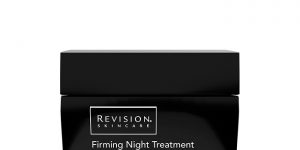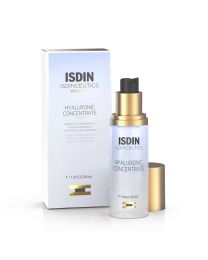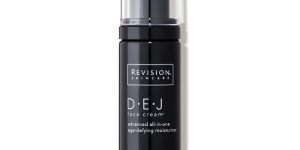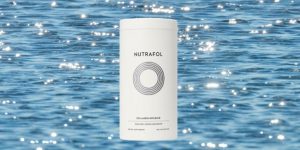Free Shipping Over $100
Free Samples With Every Purchase
Auto Replenishment Available
Authorized Reseller
Peptides vs. Retinol: Which is Better for Your Skin?

When it comes to anti-aging skincare, retinols have long been considered the holy grail, but no skincare product is right for everyone. Retinols and prescription-strength retinoids can cause skin irritation and inflammation, but until recently, there hasn’t been an effective alternative. For those with sensitive skin or certain chronic skin conditions who are not able to tolerate retinols or retinoids, peptides have become a dermatologist-recommended alternative. In this blog, we will compare retinols to peptides to help you determine which is better for your specific skin type and skincare goals.
What Does Retinol Do?
Retinols are derived from vitamin A, and they offer numerous skin health benefits, including fighting the signs of skin aging like dark spots, fine lines, and wrinkles. Retinols are beneficial for anti-aging because they stimulate skin cell turnover, revealing healthy skin cells. They also stimulate the production of collagen and elastin to tighten and smooth skin. For this reason, retinol use is often recommended to keep wrinkles at bay and maintain a healthy, even skin tone and texture. Retinols also promote more frequent skin cell turnover, so they are beneficial in treating acne-prone skin as more frequent cellular turnover helps prevent clogged pores. While there are numerous pros to using retinols, there are also some drawbacks, including skin peeling and irritation and sensitivity to sunlight. Additionally, retinols aren’t recommended for those with dry or sensitive skin as well as pregnant and nursing mothers.
What Do Peptides Do?
Peptides are amino acids that offer a unique anti-aging benefit. These amino acids are essential elements that build up collagen and elastin proteins. By strengthening and promoting collagen and elastin production, peptides help skin to look smoother and firmer. Peptides are recommended to reduce the appearance of fine lines and wrinkles as well as improving skin laxity. Peptides have also been recommended to improve inflammation and irritation related to chronic skin conditions. Peptides promote hyaluronic acid production, which attracts and retains moisture within the skin. Regular use of peptides is beneficial in improving skin health for those with dry and sensitive skin as well as those with acne or enlarged pores. Currently, the main drawback to peptide use is that the research related to using these ingredients is still limited, and while they are touted as safe for those with sensitive skin, there have been some rare occurrences of skin irritation. Additionally, some peptides are not as effective as others, so it’s important to invest in high-quality peptide skincare products that have been dermatologist vetted and approved.
Peptides vs. Retinol: What’s the Difference?
Retinols work by dissolving dead and damaged skin cells. This stimulates skin cell reproduction. The accelerated skin cell turnover increases the strength and fullness of skin’s epidermis layer and triggers collagen and elastin production. All of this works together to reduce the appearance of fine lines, wrinkles, scar tissue, dark spots, and other skin irregularities.
Peptides help to improve skin’s health and appearance by sending messages to skin cells to perform specific functions. Essentially, peptides trigger collagen and elastin production and fortification. They also stimulate hyaluronic acid production. This boost’s skin’s hydration, attracts moisture to skin’s surface, and improves moisture retention, leaving skin looking smooth and supple.
Which is Better for Your Skin?
When it comes to choosing between retinols and peptides, your skin type and skin health goals are going to be the most important factors. Retinols are recommended for oily and acne-prone skin. Retinols work well to prevent signs of aging and offer minimal improvement in the appearance of existing fine lines and wrinkles. Peptides can be used by people of all skin types. They are especially beneficial for those who have sensitive or dry skin. In addition to working as a preventive measure against the signs of aging, peptides have proven effective in reducing the appearance of fine lines, wrinkles, and minor skin laxity in mature skin.
Tips for Using Peptides & Retinols
Retinols should be used as part of evening skincare routines. Retinol is applied after cleansing skin in the evening and follow up with a cream-based moisturizer. To reduce irritation, you can utilize a lower dose retinol and build up your tolerance for higher doses. The SkinCeuticals line of retinols starts with an ultra-low 0.3% concentration and it goes all the way up to a 1.0% pure retinol concentration. You can also use retinols less frequently. Another way to minimize the potential adverse effects of retinol use is to apply moisturizer first. Then, apply retinol. Another option to prevent skin irritation or reduce risk is to utilize a specially formulated retinol like the skinbetter Science Intensive AlphaRet Overnight Cream. This innovative retinol combines soothing ingredients like alpha hydroxy acids with retinol to limit potential irritation.
Peptides are gentle enough to be used morning and evening. They can be included after cleansing and before moisturizing. ISDIN Hyaluronic Concentrate serum utilizes firming peptides, hyaluronic acid, and other naturally derived ingredients to improve skin’s hydration, smooth skin, and shrink pores. A good nighttime option is the Revision Skincare Firming Night Treatment. This product harnesses two peptides and moisturizing ingredients like shea butter to deliver intense hydration while smoothing and firming skin as you sleep.
Create Your Ideal Skincare Routine
Every person’s skincare needs and goals are unique, so it’s important to take time to develop a skincare routine that fits your specific needs. You can do this through trial and error or by working with a dermatologist to find the right skincare products. The products available from DermSkincare have been meticulously curated by our trusted team of dermatologists.
Explore Anti-Aging Skincare Options
Keeping skin looking healthy and youthful means finding the right combination of skincare products. Peptides and/or retinols are good options for preventing signs of aging and turning back the clock, but if you’re interested in developing a full anti-aging skincare routine, you can explore more of the dermatologist-recommended skincare products on the DermSkincare site. Come back to read our blog regularly for more product recommendations and skincare tips.










